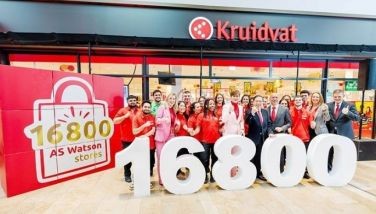DA, Coke reach solution on sweetener imports
MANILA, Philippines - The Department of Agriculture (DA) has come up with a compromise solution with beverage giant Coca-Cola Femsa Philippines over the issue of sweetener importation, giving them six months to restructure their production processing to avoid a surge in soft drink prices.
Agriculture Secretary Emmanuel Piñol said the government decided to give in to the appeal of Coca-Cola to suspend the recent order of DA-attached agency Sugar Regulatory Administration (SRA) regulating the entry of high fructose corn syrup (HFCS) into the country.
Since 2010, Coca-Cola has heavily relied on the use of HFCS when the prices of local sugar doubled compared to those imported from other countries.
“We had a consensus among us three secretaries. All that they (Coca-Cola) are asking (for) is to be given time to make adjustments and I think it’s a fair compromise,” Piñol told reporters in a chance interview yesterday.
The DA chief was referring to Finance Secretary Carlos Dominguez III and Trade Secretary Ramon Lopez, who both supported his decision to hold the SRA order in abeyance.
“They already agreed and we are giving them six months to adjust and they are very happy with it. They are willing to buy more sugar from our local farmers,” Piñol added.
Piñol is holding in abeyance Sugar Order No. 3 issued by SRA administrator Anna Rosario Paner in February, even if the Quezon City regional trial court favored SRA and denied Coca-Cola’s petition for the issuance of a temporary restraining order (TRO) against SO 3 filed early this month.
SO 3 places a cap on the volume of HFCS to be imported and imposes stiff tariff and duties on the commodity.
While Coca Cola will be spending several million dollars more for a new facility to process raw sugar for its soft drink production, Coca-Cola said it is willing to allot additional investments to help the farmers.
“It’s a few million dollars but we’re willing to do it because we believe that we are stakeholders in this industry as well. We also want the Philippine agriculture to improve and we are going to do what we can,” Coca-Cola-Femsa legal and corporate affairs director Juan Lorenzo Tañada said.
“We will use that time to be able to make the necessary adjustments in our business so can find a win-win solution,” he added.
Coca-Cola remains the biggest company that consumes commercial sweeteners. Approximately 40 percent of the country’s total sugar production goes to the beverage industry.
“We want to protect the Filipino consumers and we want the prices of our products to be stable, as 80 percent of our customers are actually coming from the C, D and E market,” Tañada said.
“Our customers will be the ones to suffer once prices start to increase. So we will endeavor to keep our prices the way they are,” he added.
Coca-Cola will also withdraw the case it filed against the DA once the directive has been released.
Aside from SRA chief Anna Rosario Paner, also named respondents in Coca-Cola’s TRO petition were Piñol, Customs Commissioner Nicanor Faeldon and members of the Sugar Board.
“Malacañang will be the one to intervene for the postponement of the (SO) 3. But that’s good as done with three ministers agreeing on that position,” Piñol said.
“We are not putting our farmers at a disadvantage. In fact, they will be buying more. They just need time to implement their changes in terms of processing and they feel that six months will be enough,” Piñol added.
Piñol expressed belief “that if things could be worked out,” the sugar industry could get a bigger share of the sugar requirements of Coca-Cola and a better deal.
The SRA earlier blamed the higher sugar inventory to the unabated entry of HFCS, which beverage firms use as a significantly cheaper alternative to sugar.
Local sugarcane producers said that for the past six years, beverage makers and food processors imported almost 800,000 metric tons of HFCS into the country, displacing the demand for 23 million 50-kilo bags of locally produced sugar and depriving the country, particularly the sugar industry, of P35.2 billion in potential income.
For the current crop year alone, HFCS importation has pulled down sugar prices from P1,800 per bag to about P1,400 per bag, translating to potential revenue losses of about P20 billion.
- Latest
- Trending


























